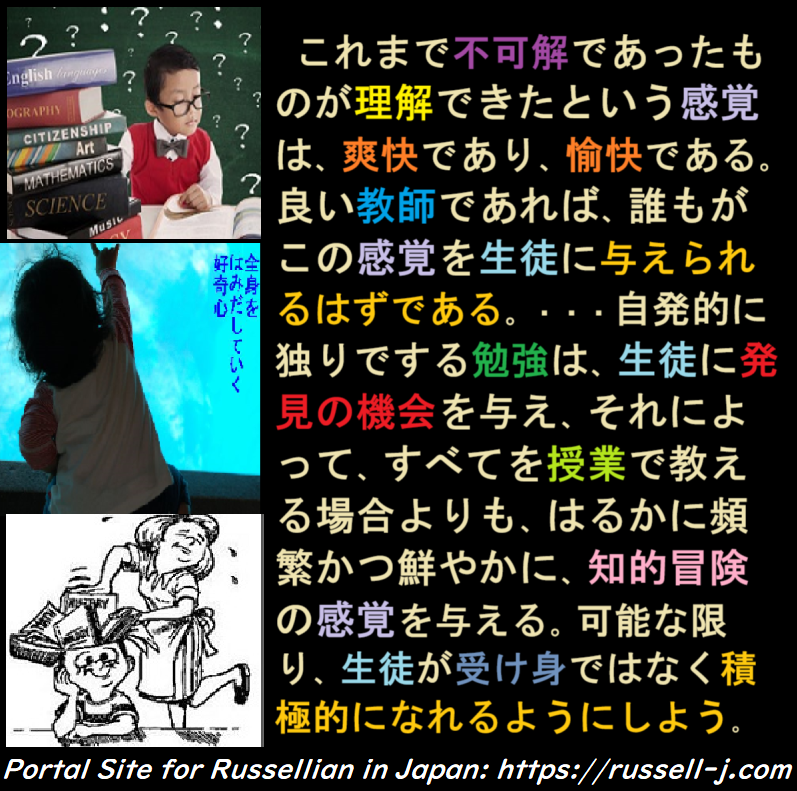
これまで不可解であったものが理解できたという感覚は、爽快であり、愉快である。良い教師であれば、誰もがこの感覚を生徒に与えられるはずである。・・・自発的に独りでする勉強は、生徒に発見の機会を与え,それによって,すべてを授業で教える場合よりも、はるかに頻繁かつ鮮やかに,知的冒険の感覚を与える。可能な限り、学生が受け身ではなく積極的になれるようにしよう。
The sense of understanding what had been puzzling is exhilarating and delightful ; every good teacher should be able to give it. ... Initiative and individual work give the pupil the opportunity of discovery and thus afford the sense of mental adventure far more often and more keenly than is possible where everything is taught in class. Wherever it is possible, let the student be active rather than passive.
Source: On Education, especially in early childhood, 1926, by Bertrand Russell
More info.:
<寸言>
日本では少子化により子どもの数が減っていますが、教師の数を維持できればより手厚い教育が可能になるはずです。ところが、現実には教員を志望する人も減っています。
その最大の原因は、本来の教育業務以外の雑務が多く、それに伴う長時間労働や、割に合わない待遇にあると言えます
そのような厳しい現場にいる教師からすれば、「本日のラッセルの言葉」は理想論に過ぎず、「絵にかいた餅」に見えるかも知れません。
しかし、ラッセルがここで述べていることは、教育や学習における基本理念であり、自分の頭で考える習慣を身につけさせることの重要性です。それは、いつの時代でも変わらない真理だと思われます。
In Japan, the declining birthrate has led to a decrease in the number of children, but if the number of teachers could be maintained, it should be possible to provide more attentive education. In reality, however, fewer people aspire to become teachers.
The main reason for this lies in the large amount of non-teaching duties, which result in long working hours, coupled with compensation that is not commensurate with the workload.
For teachers working in such a difficult environment, "Today's Words of Russell" may seem nothing more than an idealistic statement -- something like "a pie in the sky (e ni kaita mochi)."
However, what Russell is expressing here is a fundamental principle of education and learning: the importance of developing the habit of thinking for oneself. This is a truth that remains unchanged in any era.